With its acquisition of Avon in 2020, Natura &Co celebrates a network of four brands, more than six million people and a passion to create a ‘wave of change’ in the world.
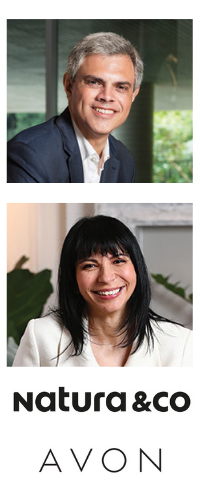
Founded:
Natura 1969 and Avon 1886
Headquarters:
São Paulo, Brazil
Top Executive:
João Paulo Ferreira, President of Natura and CEO of Natura &Co in Latin America
Angela Cretu, Global CEO, Avon
Products:
Cosmetics and Personal Care
Fifty-two years ago, Luiz Seabra was building the foundation of a direct selling company before he even realized it. He was working in a small cosmetics laboratory when he began to notice the false promises of eternal youth with which cosmetics were marketed. What if, he wondered, cosmetics could be used as a powerful instrument not for achieving aspiration, but rather embracing reality? What if cosmetics could enhance self-perception and confidence? Those experiences and revelations inspired Seabra to found his own cosmetics brand, Natura, in 1969 when he was just 27 years old.
His new company had a three-fold mission: first, offer skin care and body products made of natural and active ingredients; second, serve as trusted advisors to customers; and third, provide them with products specifically formulated for their unique needs. Seabra opened Natura’s first shop in São Paulo, Brazil, in 1970. He soon developed a reputation for highly personalized product recommendations and empathic customer relationships. That combination actually “shaped the ethos of Natura. Two passions—the cosmetics and the relationships—and the belief that this combination had the power to transform individuals,” says João Paulo Ferreira, President of Natura and CEO of Natura &Co in Latin America. “Those are the elements for anyone required to build empathy—for their families, loved ones, communities, society, and the world … and that’s what ended up being called ‘bem estar bem,’ or well-being/being well—an empathetic relationship with oneself, with others and with nature, which is the purpose of Natura.”

Seabra joined forces a few years later with a partner whose background in direct selling proved beneficial. The pair sought to replicate the Natura experience and determined that the most effective way to do that was through independent representatives.
Four brands, united by purpose
Today, what began as Natura is a connected network called Natura &Co and comprised of four brands— Natura, Aesop, The Body Shop and, most recently, Avon. The Avon acquisition, announced Jan. 6, 2020, created the world’s fourth-largest “pure-play” beauty company; the term pure play is one referenced by investors to describe a publicly-traded firm that focuses its resources on a single business line.
Roberto Marques serves as Group CEO of Natura &Co and heads a Group Operating Committee comprised of the CEOs of each of the four businesses.
Collectively, these four autonomous yet interconnected brands have a presence in more than 110 countries and represent more than 8 million independent consultants and representatives, more than 35,000 associates (employees), and over 3,700 stores and franchises. Latin America is the only region in which all four brands operate in an integrated way. Ferreira, as Natura’s president, serves as CEO of Natura &Co in Latin America and is responsible for all four brands’ operations in the region.
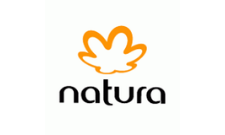
Founded in 1969 by Luiz Seabra in São Paulo, Brazil, Natura’s body care, skin care, hair care and fragrance products currently are present in 10 countries through a network of 2.1-million independent representatives, almost 600 company-owned and franchised stores and a growing online platform. In 2014 Natura became the first publicly traded company to be certified as a B Corp. Carbon neutral since 2007, Natura received the UN Global Climate Action Award in 2019.
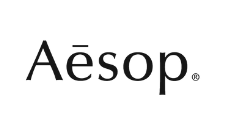
Founded in 1987 by hairdresser Dennis Paphitis in Melbourne, Australia; acquired by Natura &Co in 2013. Aesop manufactures and sells skin, hair and body care products at storefronts throughout the world. The company remains headquartered in Melbourne and is led by CEO Michael O’Keefe.
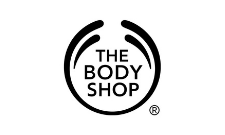
Founded in 1976 by Anita Roddick in Brighton, England, The Body Shop operates around 2,800 retail locations in 70 countries and was acquired by Natura &Co in 2017. Its naturally inspired skin care, body care, hair care and color cosmetics also are sold through The Body Shop At Home, its network of independent distributors established in 1994 by Roddick. The Body Shop maintains a strong commitment to social activism, particularly around animal testing and environmental sustainability. David Boynton serves as CEO.
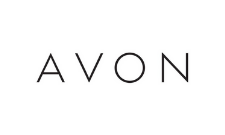
Founded in 1886 and considered one of the most democratic beauty brands in the world, Avon connects people in more than 70 countries through its network of 6.3 million independent representatives, called beauty advisors. With the exception of its operations in the United States and Japan, Avon was acquired by Natura &Co in 2020. Avon has donated more than $1.1 billion to eradicating gender-based violence and breast cancer. Angela Cretu serves as CEO of Avon International, is responsible for the business outside of Latin America and the oversight of the Avon brand globally.
What they share: Values—namely, a shared commitment to sustainability, animal welfare, human rights, and product integrity. While each brand has the resources to operate independently, “the whole is greater than the sum of the parts,” Ferreira says. The depth and breadth of this alliance enables Natura &Co to enact more impactful economic, social and political change.
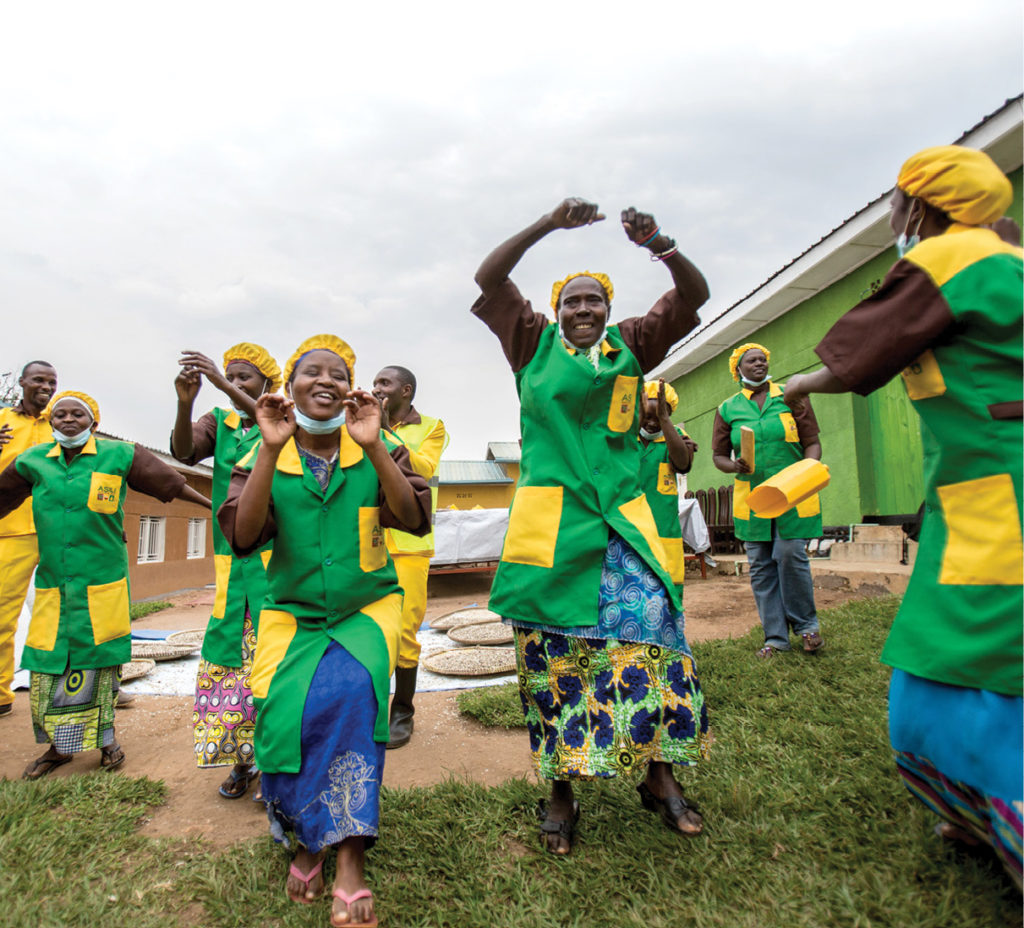
To date, Natura, Aesop and The Body Shop all have individually earned B Corp certification, and Avon is expected to earn the designation within the next two to three years. Natura was, in fact, the first publicly traded company to be certified a B Corp. As of this year, the Natura &Co Group has its own certification, making it the largest B Corp in the world today. Certified B Corporations are businesses that meet the highest standards of verified social and environmental performance, public transparency and legal accountability to balance profit and purpose. Members demonstrate commitment and work to reduce inequality and poverty, promote a healthier environment, stronger communities and the creation of more high-quality jobs with dignity and purpose. In short, the designation represents a promise to generate value not just for stakeholders but for the society at large. During the pandemic, Natura &Co brands made R$121 million in donations divided among frontline domestic abuse services (on behalf of the Avon Foundation), essential products for NGOs, Red Cross and health organizations (Natura &Co Latin America), essential products in Australia (through Aesop and the Aesop Foundation 2020 Support Fund), and essential products for healthcare staff in emergency hospitals (on behalf of The Body Shop).
CEO of Natura since 2016, when the company only had Natura and Aesop under its umbrella, Ferreira led the charge to refresh Natura’s direct selling model when he first came into the role. “We learned that we had failed to modernize our operations model and the offering for our Beauty Consultants to make the activity more attractive, more fulfilling, so that they would make better profits, and so on. So, we redesigned our offering completely, moving from a one-size-fits-all to a segmented approach for the consultants, also offering progression into our commercial model, strengthening and modernizing our brand and the products we were offering consumers.” Additionally, Ferreira says, the company embraced digitalization as much as possible in an effort to “reduce the barriers in the transaction between consultants and ourselves and consultants and their clients and improve the quality of the offerings so they could have more information in their hands when doing business. And we succeeded in doing so. That’s what allowed us to invite other companies in such as The Body Shop and Avon.”
The Avon Acquisition
While it was then the world’s fifth-largest beauty company, generating $5.5 billion globally in 2018 through its network of more than 6 million independent beauty advisors, Avon had struggled to keep up with the ongoing evolution of consumer buying preferences and, subsequently, saw declining market share and revenues. However, the global brand had made an indelible impact on the lives of millions of women not only through its products and business opportunity but also its philanthropic commitments in excess of $1 billion. For Natura &Co, Avon was a natural fit.
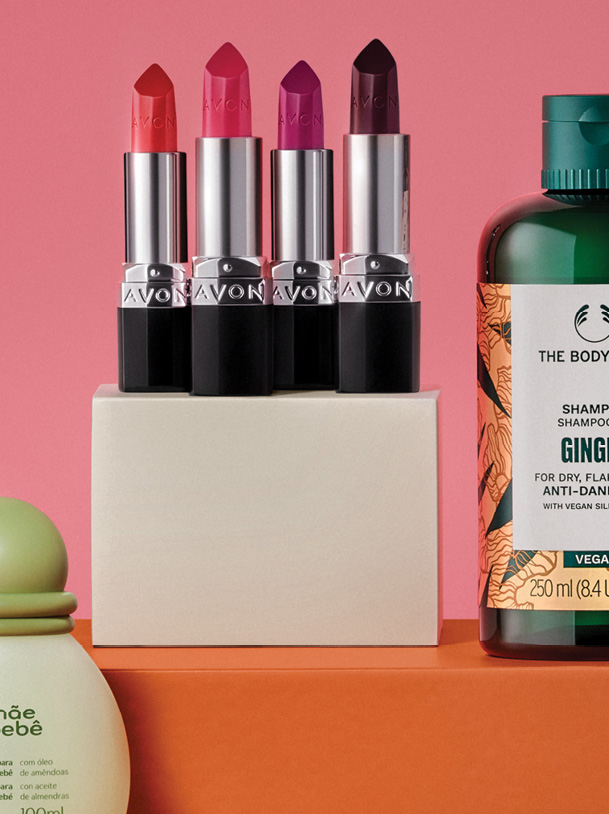
“They basically invented our industry, didn’t they?” Ferreira says of Avon. “That legacy deserves respect, and we admired that a lot. We thought that our own experience could help its renaissance. How could such a well-known brand present in so many households for so long not do well? We understood that our own experience modernizing and upgrading our value proposition for clients and consultants would add a lot of value to Avon … modernizing the brand, strengthening it and adding digital tools to those relationships. Many Avon products are amazingly good, extremely high value for money, and yet people don’t know because we stopped telling those stories. We thought we could add value to Avon based on our own history and, of course, not only learn from them but achieve global scale through their enormous network.” In the short term, he says, Natura &Co is focused on resuming growth for Avon; and in the longer term, Avon will follow Natura’s steps to modernize the commercial offering for representatives, invest in the brand to make it younger and more modern, and build more robust digital solutions.
Angela Cretu, Global CEO of Avon, says the alliance couldn’t be better for the brand. “What excites me most is that this group has the ambition to be the best beauty company for the world,” she says. The primary focus of this purpose-driven organization, she adds, is “how to give more than we take. It was a very different experience to co-create with competitors in the past. This is a refreshing and empowering approach. We’re creating synergies while keeping our distinctive value proposition.” For example, “we can use each other’s geographic footprint to bring in other brands and gain faster access into new markets.” Each of the four brands under the Natura &Co umbrella, she adds, “cover specific customer preferences and, ultimately, can give the overall beauty industry and consumers more choice.”
Avon’s digitalization was already well underway when the global COVID-19 pandemic began. As stay-at-home orders became widespread, the company accelerated its timeline and quickly facilitated the expansion of digital tools to meet beauty advisors and consumers where they were and support online sales. Those efforts paid off; Avon International had a net revenue increase of 2.9 percent compared with 2019, and the four brands within Natura &Co achieved their highest market share ever in Latin America last year, “proving that this combination is very powerful,” Ferreira says. Avon’s integration, one of the group’s six priorities to boost value creation, represents a key component of the group’s growth projections. The group’s other five priorities are the acceleration of its omnichannel model and ongoing digitalization; creation of a unique beauty portfolio; expansion of its geographic footprint, especially in Asia; evolution of its business operating model; and its continued drive to create positive impact through its Commitment to Life. Natura &Co’s objective is for those six priorities to lead the company to high single-digit growth for the next couple of years.
Commitment to Life for 2030
Last year, Natura &Co unveiled its Commitment to Life, a comprehensive 10-year sustainability plan which will step up the group’s actions to tackle some of the world’s most pressing issues, including the climate crisis and protecting the Amazon, the defense of human rights and ensuring equality and inclusion throughout its network, and embracing “circularity and regeneration,” or increased sustainability in packaging and formulas and greater investment in developing solutions like biotechnology and regenerative agriculture. Natura has a 20-year history of building sustainable economic alternatives in the Amazon and currently preserves two million hectares of land, an area equivalent to half of the Netherlands. The company works with 34 local communities in the Amazon region, including more than 7,300 families, to help them develop sustainable business models that benefit the rainforest. It plans to expand its reach to 40 supplier communities and increase revenue streams with the use of 55 bio-ingredients, up from 39, a move which is expected to share at least R$60 (Brazilian Real) million with local Amazon communities. The Commitment to Life, Cretu says, represents a promise from shareholders not just to embrace a culture of sustainability and inclusiveness but to “step up and create a wave of change in society.”
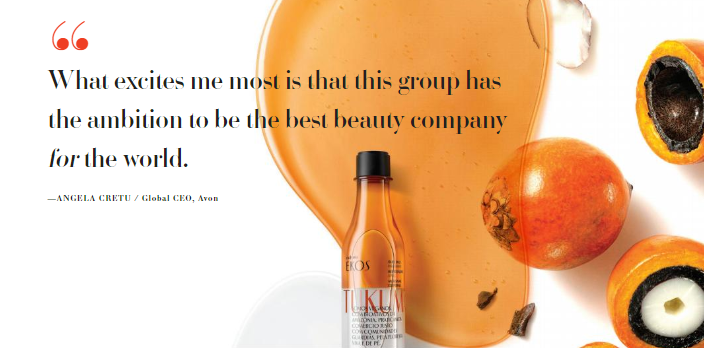

With J.P. Ferreira, President of Natura and CEO of Natura &Co in Latin America and Angela Cretu, Global CEO, Avon
Q: What are the challenges associated with running such a large entity with four companies under its umbrella?
J.P. Ferreira: Determining how we complement each other in the eyes of consumers and their customers while protecting the identity and originality of each of those brands. Many of our associates don’t belong to any particular brand anymore – for example, some of our factory workers are producing products for all four brands, and our back-office functions … legal, finance, supply chain, HR, operating services for all of the companies. I think the pandemic helped quite a lot in terms of our culture. At the beginning of the pandemic, we pushed ourselves to go back to our roots and our purpose—that people come first. We didn’t know what would happen to the business.
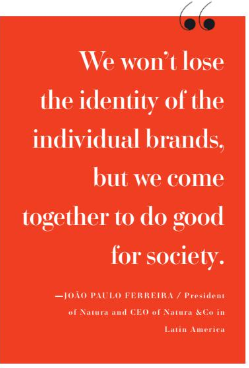
We decided on three things. First, work to contain the compassion, and we did that by redirecting all of our production capacity to essential items for donations across Latin America. We’ve donated millions of units of those products. Second, protect our people—not only our own associates but moreover our huge network of consultants, 4.5 million in Latin America. We created emergency funds for them to support the most vulnerable with food, to provide telemedicine and, unfortunately, assistance for funeral services. Third, maintain the economy active because most of those consultants lost their jobs and didn’t have any other alternative to feed their families if not for their beauty consultant activity. So, we accelerated all of the digital features we’d been building for years and trained those consultants so they could continue to serve their clients remotely, which was a huge success. Because of that, during the pandemic, right after the arrival of Avon, everyone stopped asking “Where do you come from?” because the purpose was much higher than that. This is what connects all of us. We won’t lose the identity of the individual brands, but we come together to do good for society.
Q: Are there any plans to continue to build the Avon brand independent of the Natura &Co brand even though Natura &Co is now the parent company?
Angela Cretu: Natura &Co is a company for the world, but in terms of individual brand expression, we have the resources to express our uniqueness. Avon is all about women’s empowerment—our dignity, financial independence and equality. The identity of our brand will continue to evolve … the beauty of this group is its diversity. But we’ve created a stronger and more cohesive voice as Natura &Co.
Q: What have you learned during the last 16 months?
J.P. Ferreira: What I’ve learned is that people come first – that’s it. We have only Latin America, but we mapped the number [of COVID deaths] among our network of reps, and we’re counting 1,200 so far. If you look at the number of associates, it’s 20. We have some of the countries most affected by the pandemic here. So, what’s the sense of talking about this year’s sales or profit projections? We need to focus on people first and what we can do internally and externally to try and support and influence public policy as well. But let me tell you one thing I experienced through that period, and I hope it will be a unique experience in my professional life. Our business improved tremendously. Our brands in Latin America have been rewarded as the strongest brands for society, and our company has the best reputation among all sectors—over Amazon, Facebook, Google— we’re ahead of them. Consumers value the way we act. Consultant loyalty also is at its highest because consultants value and reward our loyalty. Similarly, our internal engagement surveys with our associates are well above internal benchmarks. So, in hindsight, it may sound obvious, but doing the right thing bears good results in the end for everyone because people are here for a higher purpose. In the toughest moment, we didn’t hesitate and forgot all of those short-term internal targets and did the most that we could for people, and that’s practical learning that I hope never to experience again.
Angela Cretu: People should always be the focus. That became obvious for everyone in this game. I hope that learning changes the way companies connect and nurture their own people. As a leader, I’ve learned that life is so dynamic—the market is changing at a fast pace, and as leaders, we should ask ourselves every morning, “Why would she choose me today?” I want to make sure I’m adding value to my own environment. It’s not an easy challenge, but it’s mine every day. I see my role as an enabler, not a dictator.
Q: How have the last 16 months changed Avon?
Angela Cretu: We were looking before to adapt our business model to meet trends in the marketplace, increase our omnichannel access and provide instant gratification. The pandemic completely changed the pace of that, but we still need to keep that high-touch relationship. We stepped up our digital tools so beauty advisors s felt comfortable nurturing their customer relationships as much as possible, even when they couldn’t leave their homes.
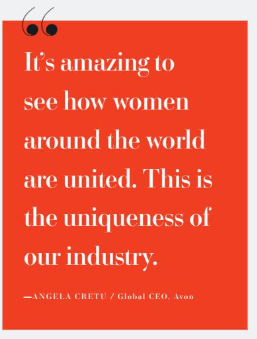
Initially, people were trying to process the pandemic and were paralyzed. By acknowledging all of those fears, we were able to find solutions. We engaged beauty advisors in the discussion so they felt included as partners, and they rose to the challenge more than I could have ever imagined. It was a great reminder of the power of direct selling to create relationships no matter the crisis. We’ve received feedback from thousands of women that they felt unbearable pressure to hold multiple roles without knowing what tomorrow held, and they felt alone and isolated. So, we launched a “global gallery” and asked them to share their stories of how they were overcoming adversity—juggling motherhood and career, surviving breast cancer, overcoming domestic violence—and we received over 450,000 responses. Women tell us that “Whenever I doubt myself, I go there and just read one story from Saudi, from Germany, from Australia,” and it’s amazing to see how women around the world are united. This is the uniqueness of our industry.
Q: How do you think Avon will continue to distinguish itself in the direct selling industry?
Angela Cretu: Online tools will always be part of the game, but one thing that won’t change and is more relevant than ever is our ability to offer so much more than products. We’ll continue offering tools so that our consultants can operate in an online environment, but what will distinguish Avon are the relationships that create value for the community, not just stakeholders. We can tap into those trusted, authentic relationships and continue to build on that legacy. And we need to remain humble and open to learning new ways to connect with beauty advisors and customers.
From the August 2021 issue of Direct Selling News magazine.


